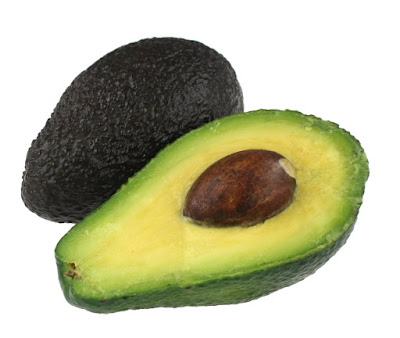FOODS THAT CAN BOOST YOUR BRAIN
Whole grains:
Complex carbohydrates in oatmeal and other whole grains provide the brain with a reliable source of energy, a steady flow of glucose in the blood to help children stay focused throughout the school day. A bowl of muesli or whole wheat bread in the morning can keep your adolescent alert throughout the day.
Fatty Fish :
The body does not produce essential fatty acids. That's why you should be serving your boy salmon, sardine, mackerel, trout, halibut and tuna. These fatty fish contain eicosapentaenoic acid and docosahexaenoic acid, omega-3 fatty acids that help control stress and help the brain to produce the brain chemical known as the well-being of serotonin. If you can not get your teenager to eat fish, to offer the best alternative vegetarian substitute: soybeans, pumpkin seeds and nuts. All of these foods help healthy brain function and memory.
Red and dark purple fruits:
Blueberries, craisins, cherries, red cabbage, purple or dark red grapes, and eggplant skins are rich in anthocyanins, which prevent short-term memory loss. If the child is able to study for that exam the night before, a rich red fruit and dark purple diet will help keep what he or she has learned in cramming. In any case, it is usually no hassle for children to eat cherries and berries, so they serve them often!
Vitamin C:
Some of us struggle to solve math problems, while others just write down the answers and look for more. Vitamin C is the secret of an agile mind and all sources of vitamin C are good for this purpose, including citrus, broccoli, red peppers and blackcurrants. Her mother knew what she was doing when she was given the orange juice in the morning. But I emphasize that if your boyfriend prefers to eat a handful of craisins. It's okay.
Pumpkin seeds:
Your teenager needs zinc to think, and pumpkin seeds are probably the best source of zinc. The small power plants increase memory and contain magnesium, which keeps your stress levels low. Finally, pumpkin seeds are rich in B-complex vitamins and tryptophan that are necessary for the production of serotonin and mood regulation. They are fun to snack on, so it should not be difficult to get your teenager happy eating away on a handful of little suction cups.
Broccoli:
So your teenager hates cooked broccoli? Try to serve raw with a batter to the crisis factor. Broccoli has vitamin K, which helps you think about power. Green vegetables also contain compounds known as glucosinolates that keep the central nervous system functioning at peak performance during memory sharpening and improve brain function.
The dark chocolate:
Good chocolate with 70% cocoa has anti-inflammatory properties and is full of antioxidants and flavonoids to boot. These good things help control blood pressure, increasing blood flow to the brain. This can not stop making your son a genius, right? BONUS? Most children (and adults) do not reject a candy bar.
Extra virgin olive oil:
This good green oil is rich in polyphenols, antioxidants that accelerate learning and accelerated memory. AOVE, as food snobs call it, helps the body fight amyloid proteins called B-derived diffusible ligands that are harmful to the brain and those involved in the development of Alzheimer's disease later in life. Think of olive oil not just as a cooking oil dressing or salad, but as seasoning to be filled on most of the added delight dishes. Serve on a plate with balsamic vinegar as a sauce for a good, crunchy bread.
Turmeric:
This yellow spice, which prevails in curry, increases the flow of oxygen to the brain. This means that your child will not only be more careful, but it will be easier to process information. Add turmeric rice, eggs, or soup. You can also mix turmeric with butter or oil over low heat to form a paste, fresh, and add to the shakes.
Apples:
They keep away from the doctor, and one of the reasons is that they contain a lot of quercetin, an antioxidant that protects brain cells to keep the brain that works like a well-oiled machine. Quercetin protects against attack by free radicals in brain cells that can damage the outer lining of neurons, which could lead to cognitive impairment. Researchers say that most of the quercetin is found in apples skin so don,t peel it.
Eggs:
Eggs are said to be one of the best fundamental neurotransmitters as it plays choline. Along with this substance, eggs also contain cholesterol that helps the brain function properly. Having one or two eggs gives children more brain power.
Nuts:
Yes, nuts are one of the foods to boost brain power during the examination period. It is full of rich nutrients that make it the most powerful brain. It acts as a booster and maintains brain health with its nutrients such as vitamin E, omega-3 fatty acids, fiber, copper and manganese. Consuming one or two walnuts a day will make your brain work effectively.
Green leafy vegetables:
Many children do not like green leafy vegetables and try to avoid them on the dishes. However, green vegetables are good foods to boost brain power during the exam period, with its protective brain antioxidants such as vitamin K, folic acid and lutein.
Avocado:
With rich monounsaturated fats, avocado has the power to protect brain cells. According to experts, it is advisable to consume the juice of avocado two or three times a week to improve brain function.
Spinach:
Nothing will be more effective then spinach to increase your memory capacity during exam time. It is packed with brain-protective antioxidants along with vitamin K, folic acid and lutein. This causes spinach to be one of the foods to boost brain power during the exam period.















No comments:
Post a Comment